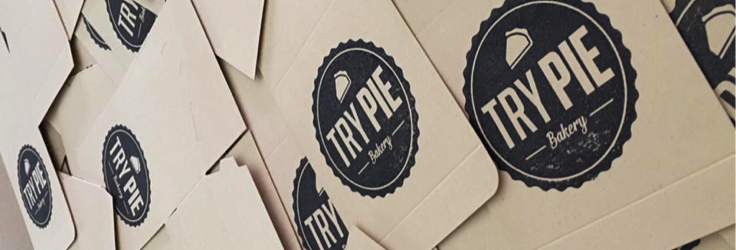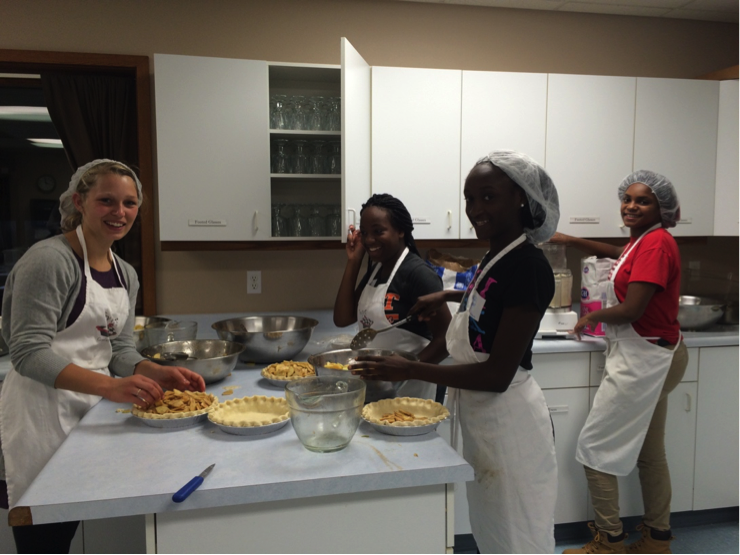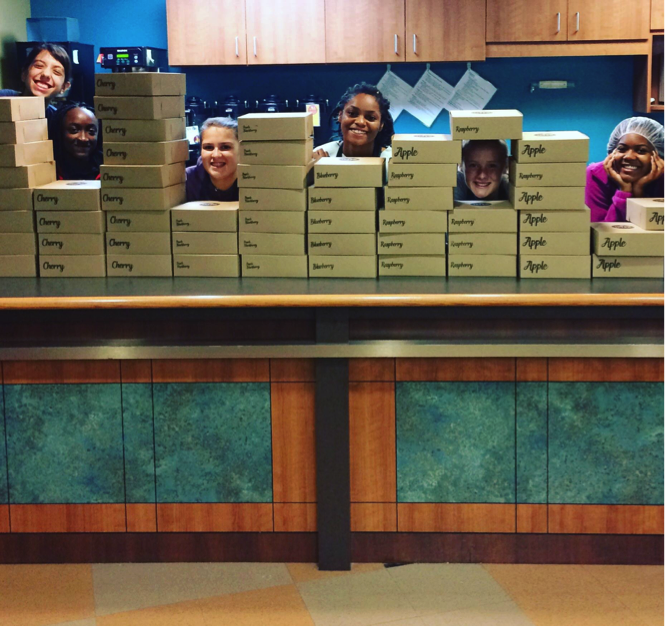 This month, our project manager got to sit down for a phone conversation with the leaders of Try Pie, a social enterprise working to develop young girls in faith, leadership and work skills – through the practice of making and selling pies. This enterprise is enacting ministry in new ways – instead of Wednesday night youth group, these high school girls are given a chance to experience community and job training through the process of making and selling homemade pie. Try Pie has been a client of Ministry Incubators for just over a year, and we are excited to share about their experience in ministry through their social enterprise.
This month, our project manager got to sit down for a phone conversation with the leaders of Try Pie, a social enterprise working to develop young girls in faith, leadership and work skills – through the practice of making and selling pies. This enterprise is enacting ministry in new ways – instead of Wednesday night youth group, these high school girls are given a chance to experience community and job training through the process of making and selling homemade pie. Try Pie has been a client of Ministry Incubators for just over a year, and we are excited to share about their experience in ministry through their social enterprise.
Try Pie began how many great businesses start – with a good idea and the right team behind it. When Megan, a local church missions leader, learned about social entrepreneurship in the context of ministry, she was immediately intrigued. The idea fit well with the needs she saw in her local community, as she had a group of neighborhood girls asking her for job opportunities. All it took was a small gathering of the girls to brainstorm what this job opportunity could look like – and they landed on the idea of pie. A Hatchathon and some consulting with Mark and Kenda, along with the incredible work of Try Pie and their support network, has brought this idea into fruition. Try Pie now offers a place for young girls to find job training, spiritual development, and community that reconciles across diverse backgrounds.

When we sat down for our conversation, Megan and Sarah, the directors of Try Pie, had recently hit an incredible benchmark worth celebrating – the sale of 4,000 pies! Since starting Try Pie in 2014, they have been able to offer over 1600 hours of work to high school girls, this year alone providing 575 hours of work experience to the seven girls currently in their program. Their success and growth has recently included a partnership with a local dairy outlet to retail their pies in greater capacity. This growth has allowed sales to increase and as a result give more consistent hours to the girls in the program. As Megan and Sarah explained, it has allowed the Try Pie program to run through the summer (when previously they had to take the summer off), allowing for year-round relationships to be maintained. It does, however, pose challenges to the Try Pie staff, as they have to keep up with this new demand in a sustainable way. But they would not trade the success, and are instead learning how to grow through the changes and figure out how scale happens without throwing off the balance of the business with the leadership program being offered to the high school girls.
One of the most powerful outcomes of the Try Pie social enterprise has been the community that has formed between the girls. Megan and Sarah intentionally hire girls from surrounding cities that are very different from each other and who would not otherwise spend quality time together. Try Pie gives girls the opportunity to find new community, engaging with other young people through the activity of pie making and doing something for a common goal. This differs substantially from a typical youth group model, which both Megan and Sarah do purposefully. They want girls of all backgrounds to have the chance to come together and find meaningful work and community in a very uncommon format. This happens in the simplest of ways – rolling out pie dough, mixing fruit, packaging the finish product. This community is key to the mission of Try Pie, and Megan and Sara are constantly finding ways to support this through both their teaching and the structures they set in place.
Try Pie works on the forefront of the ministry and business overlap – both pioneering and figuring out from others along the way. They see their ministry being practiced through the activities of Try Pie, focusing on the ethics behind work and why it is important. They teach the practical aspects of work and job training from a young age, statistically supported as bringing better personal and career outcomes for young people coming from lower socio-economic backgrounds. Yet they also teach a theological vision of work, especially emphasizing how God has gifted everyone with skills to work well and contribute back to the local community. They believe that the gift of work is meant to be given back, that all people are born with potential and that can be practiced through the skill of being a pie maker. Try Pie is an opportunity to habituate and experience work and faith, showing God’s invitation in to work and how this is participation in the community of Christ.
Practically speaking, Try Pie has had a lot of learning to do along the way. While Megan and Sarah had lots of prior ministry experience, they were just entering into the world of business and social enterprise, and had minimal knowledge of how to launch a profitable business. They both agreed that you learn as you go, but were extremely grateful for their community who offered help and support as questions came up. As they learned basic business acumen, they were amazed to see how little they really needed to get started, and that they did not need to be the experts. They found the most important key to their success to be the market research they did in their local community before launching. This surveying allowed them to listen well to what the community needed from the start, and that insight continues to drive their business growth forward. Their openness and reliance on God and their community shows how the drive to launch an idea into an enterprise does not require an MBA, but the willpower to bring a project to life. For Try Pie, the result is sweet, and keeps getting sweeter.

You can learn more about Try Pie and the work they are doing with youth development through job training at www.trypie.org. Sign up for our monthly Ministry Incubators newsletter to learn more about opportunities to hatch your own ideas or join the movement of ministry through social enterprise!




0 Comments